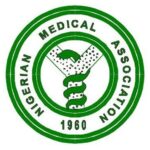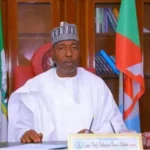Dr DeWayne Frazier is the new President of American University of Nigeria (AUN). In this interview, he speaks about his dreams of making the university a global one. Under him, he said the university will train quality nurses and doctors for the North East.
How has it been coming to Nigeria and AUN?
I can’t say I was surprised, but I was very happy with the reception that I’ve received traveling around Adamawa State and right now it gets a really bad reputation from Western media and from quite a few entities around the world saying this place is unsafe. I was urged not to come and when I got there, it was like I feel much safe there than I feel in Chicago, New York and other places.
I have three adopted children that are from Eastern Congo and so Africa has played an important part in my life, and the children had been home for 13 years.
- Tinubu writes Reps, seeks N500bn for palliatives
- COAS to Plateau governor: Bring all on board to end killings
It’s been a blessing so far. I found the reception great and I will say again, Nigerians certainly can make any food spicy. I mean, I didn’t know that you can get white rice and it would be spicy. Some of these dishes are so authentic, you won’t find them anywhere else in the world and I won’t lie Nigeria has the best Jollof rice I’ve ever had in my life and I’ve had Jollof rice from a lot of places.
What are your plans to further increase the competitiveness of AUN among other rising universities in the country?
We’re not a Nigerian and American University only, we want to be a global university. So I’m actually working with things like Times Higher Education, which is the British outfit that does rankings. I’m talking with them about, maybe hosting a conference in the future to bring African colleges and universities there.
I’ve been enticing the faculty to do that, finding ways that they can do research and also to be able to host international conferences on our campus in Yola. It will bring in business and revenue for my people in Adamawa.
The governor has been great in supporting us there and so I want to do the international conferences, but the linkages with international universities will be something at a different level.
I’m also going to meet with a couple of the largest research institutions in America, the University of Louisville in Kentucky, which has one of the best engineering schools in the world. We’re going to link with them and their Pan African Studies department.
We’re going to link with the Carver School of Medicine, which is at the University of Iowa. They do research on diabetes; we’re actually getting ready to work together.
We’re going to start a study on long-term chronic illness in the region of the Northeast, and we’re looking at applying for larger grants when we find what is the most prevalent, like if it’s diabetes or heart disease or what’s out there and then I’ve been connecting also with a lot of churches and mosques and groups in America that can be of assistance.
I’ve already gotten some groups that want to help work with us. So what I want to do is get as many international groups and a lot of them will be Americans because we’re an American University working alongside the Nigerians because if I get them to visit one time, they’ll fall in love with your country, because you guys are so hospitable.
Recently, the university got approval for new courses like public health, how do you intend to make it different from what is obtainable in other universities?
Our programme has its resource visit next week, so we’re not fully approved yet. We’ve paid all of our fees and turned in every document through the faculty. We have all the positions being posted. I expect within a week or two that we’ll get that approval but I don’t want to foreshadow and say the NUC has already approved it.
They have approved quite a few of our other programmes but I have no doubt because of the resources we’re putting into public health with the WHO and then with nursing. For nursing, we have the former leader of Adamawa State for nursing who helped start some of the diploma programmes because we’re going to do the full bachelors which is the most needed, but what’s going to make it vastly different is a couple of things. We are working now with the University of Northern Iowa where the top nurse used to work with me when I was running nursing programmes.
He’s actually coming to look at our curriculum and we’re going to follow what your country requires. But we’re also going to add some of the American-style curriculum to it. So not only will they take a lot of the general education courses you have to take, but they’ll also have programmes where they have to do work in our little clinics, either on campus or out in the communities. So the nurses are going to get so much real-world experience, which is required, at least in the US model.
I don’t know the Nigerian model much yet but I’m learning about it, but we call them practicums and so that type of practicums is going to not only help these nurses have a passion for this but also understand it’s important. It’s not a job, it’s a career because if you don’t love it, you can’t do it because it’s super difficult. Public health is not for everybody. You have to get the right person to do it.
So we’re going to try to teach them about stress, anxiety and everything about the career and they’ll have American nurses come to teach them at times, and Nigerian nurses, so that’ll make the programme different.
Instead, what we try to do is know what the community needs by listening and accepting what people bring to us and saying we need this for the region. We struggle all across the world and especially in the northeast part of Nigeria with having nurses and quality health care.
What would happen if we have people that appreciate the area, that can work in Yobe and Borno states and we eradicate things like malaria maybe?
Do you have any plan for resource exchanges between AUN and others in courses like ICT, engineering?
Each academic programme has to be a little bit different because of how available they are even in the US. One of the most difficult programmes to start in America is engineering because it’s very costly. It’s costly here too but in America, most small private schools do not have engineering. So that’s why I’m working with a big institution like the University of Louisville, where they’ll guarantee admissions for our students into their bachelor’s degree; to do their master’s degree in one of the top engineering schools in the world.
The other thing that they’re going to do is Zoom lectures with us, where they’re going to come in and you’re going to have Americans teaching sometimes a lecture on a specific topic of their research interest and vice versa.
So we do this kind of exchange with engineering because they already have to go to school for five years; they do that extra year where they’re going to do their internships.
I am working on how you will do three years with us, let’s say political science or business, and then you go do the last year at one of my three or four partners that I’m going to have as close private school partners.
Now why is that so important? Because it’ll bring in more international students, they can come and study with us for two or three years and then try to go after their studies.
So I get excited about it because we’re going to have more international students. I don’t want my Nigerian students being on campus and being that you know 90 per cent of the students, I want to see a quarter of the students being from around the world, because then Nigerians will grow in their thoughts of being global citizens and they’ll understand what it means to operate in a global economy better.
AUN introduces courses that are not studied in other universities, how do you get your lecturers?
I do a lot of begging, a lot of praying and know we have a lot of people who have had education in western schools. A lot of Nigerians that we have are people that come from the United States and others and so they’ve either had the course or they’ve got close enough academic discipline that we can say here’s an example of the course, here’s an example in America and here I’m sure it is the exact same thing, we have the syllabus.
That syllabus says the suggested textbook, it has the learning outcomes, what type of assessments we use in the course and then it kind of gives a breakdown of what we’re doing in there. What we try to do when someone’s developing a new course and I’ve done this in America for years, is you give them a copy of the syllabus and I can get them a copy of the syllabus from any school in America we share with each other all the time.
It probably takes in real time, a good six months to prep a new course that you haven’t taught. So some of those disciplines in specific courses are difficult but if we start a whole new programme that doesn’t exist, say here in West Africa or something, then we’ll have to source it from someone in the West.
Any plan for medical school?
The dream of having a medical school is in our plan, we want to be able to have a medical school just like we need more nurses in the area. I mean in Adamawa, just in that region alone, we could employ every single medical doctor that we graduate, no doubt in my mind.

 Join Daily Trust WhatsApp Community For Quick Access To News and Happenings Around You.
Join Daily Trust WhatsApp Community For Quick Access To News and Happenings Around You.


